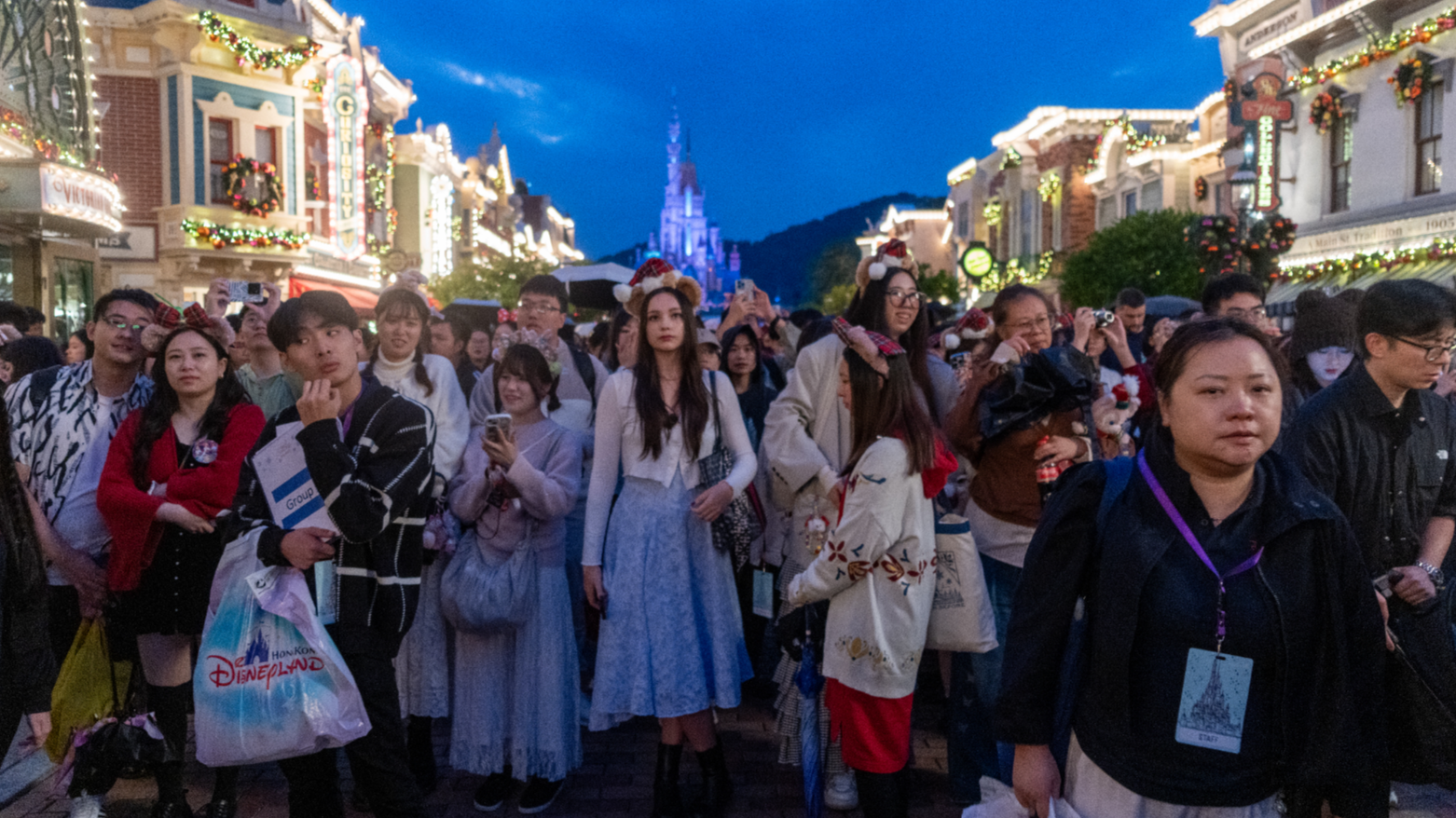
Hong Kong saw a notable increase in Chinese mainland visitors over the weekend following the reinstatement of the multiple-entry Individual Visit Scheme for Shenzhen residents in Guangdong province.
However, industry insiders caution that sustaining this momentum will require enhanced services, as Hong Kong’s tourism sector faces growing competition from mainland destinations.
READ MORE: Mainland visitors flock to HK as multiple-entry policy restored
Authorities announced on Friday that starting from Sunday, Shenzhen residents will be allowed unlimited visits to the special administrative region, with stays capped at seven days. Previously, Shenzhen residents could visit Hong Kong only once a week for a maximum of seven days.
The number of mainland travelers to Hong Kong on Saturday surpassed 138,000, a significant jump from around 85,000 visitors the previous day and nearly double the 69,720 recorded a year ago, according to Hong Kong’s immigration authorities.
Even on Sunday — when visitor numbers typically decline — over 109,000 mainland visitors crossed the border into Hong Kong, compared to just 78,721 on the same day in 2023.
The multiple-entry policy for Shenzhen residents was implemented from 2009 to 2015 to bolster Hong Kong’s economy following the global financial crisis, before being suspended to control visitor numbers and their impact on local communities.
Simon Wong Ka-wo, president of the Hong Kong Federation of Restaurants and Related Trades, welcomed the reinstatement, noting its immediate and visible effect.
“Sunday saw 109,000 visitors, more than on previous Sundays that typically saw falling numbers of 80,000 to 90,000. There are noticeably more mainland tourists in the markets and malls,” he said.
Yang Jinsong, director of the International Institute of the China Tourism Academy in Beijing, said the new policy allows Shenzhen visitors more flexibility to travel to Hong Kong.
“This change alleviates pressure on Hong Kong’s catering capacity and avoids concentrated travel during peak holiday periods,” he said.
Another key feature of the new policy is the extension of eligibility to individuals without a Shenzhen hukou — household registration certificate — but who possess a residence permit. Since only 6 million of Shenzhen’s 17.66 million residents hold a hukou, this extension could potentially facilitate travel for over 10 million residents, according to official estimates.
Wong said every visitor is important for the catering sector, regardless of how long their stay is. “Even if they come just for a cup of authentic Hong Kong-style milk tea or a pineapple bun, this will support the food and beverage industry,” he said.
Although there has been a decline in per capita spending among mainland tourists, Wong said, the increase in arrivals could help offset this loss and mitigate the effect of local residents traveling north to shop in more affordable mainland cities.
However, to transform the relaxed travel policy into increased tourism revenues, Hong Kong’s hospitality sector must adapt to better meet the needs of Shenzhen consumers, who have long been a significant source of visitors to Hong Kong, experts said.
Xu Xiaolei, chief brand officer of Beijing-based CYTS Tours Holding Co, said that Hong Kong authorities should focus on encouraging repeat visits from the eligible 10 million-plus travelers by enhancing the service experience.
ALSO READ: Chan: Multiple-entry permits for SZ residents to boost spending, ties
“Since Hong Kong’s return to China in 1997, it has remained a popular destination for mainland tourists. However, the rapidly developing mainland tourism industry has narrowed the gap,” Xu explained, adding that raising the quality of service is essential to retaining Shenzhen consumers.
Wong said that travelers once came to Hong Kong primarily for luxury shopping. Many now seek short-term visits that offer immersive experiences, necessitating adjustments in Hong Kong’s dining and retail industries to avoid inadequate reception capacity.
Yang said authorities should meet the need for immersive experiences to make local theaters, sports venues, and other day-to-day entertainment options more readily available to mainland visitors.
Contact the writer at lilei@chinadailyhk.com


